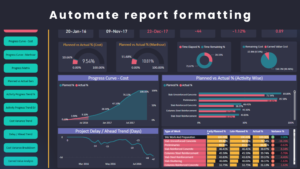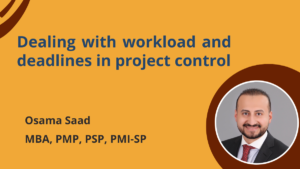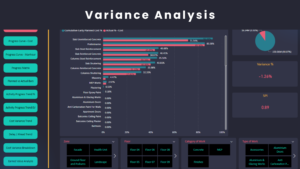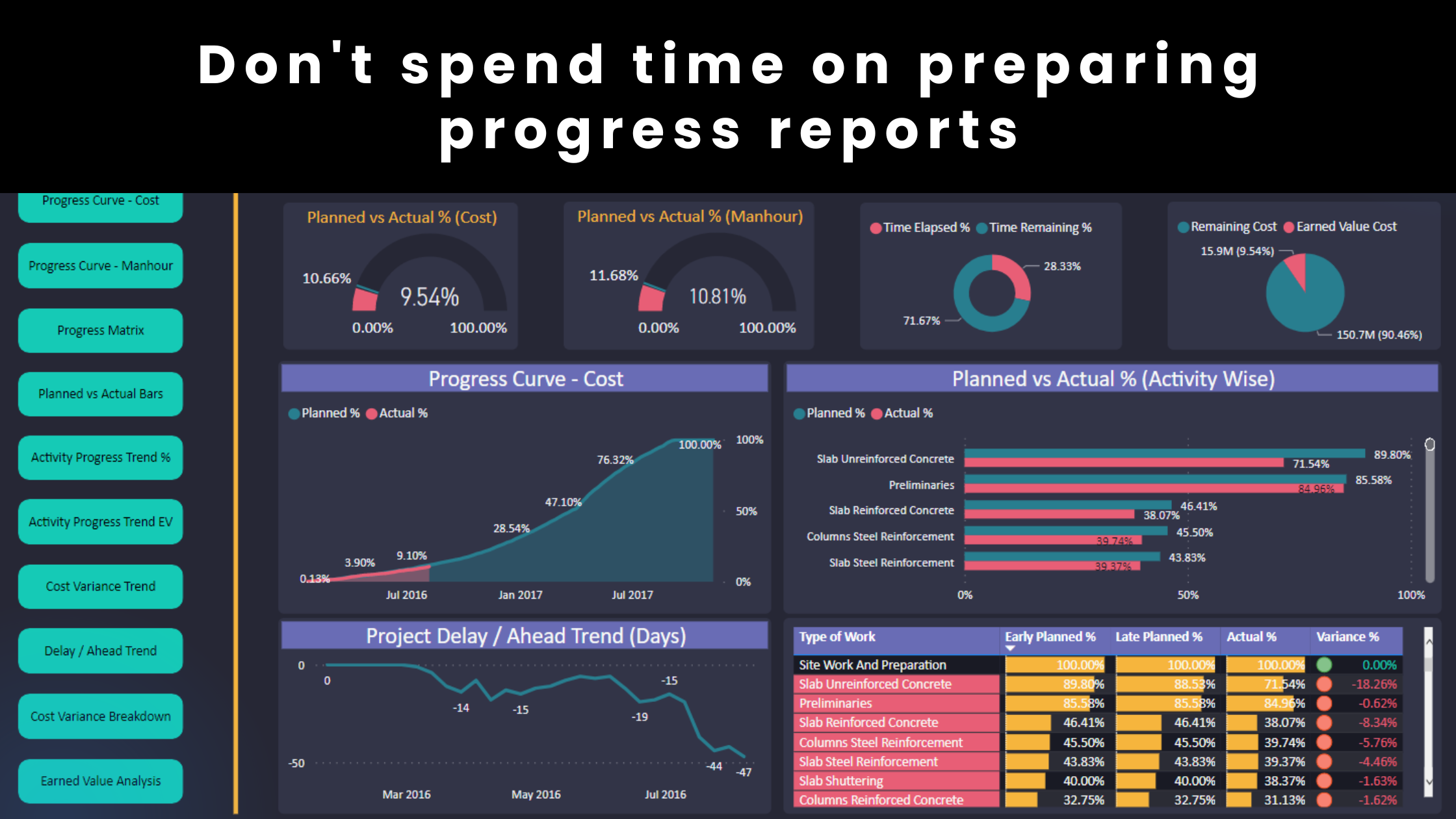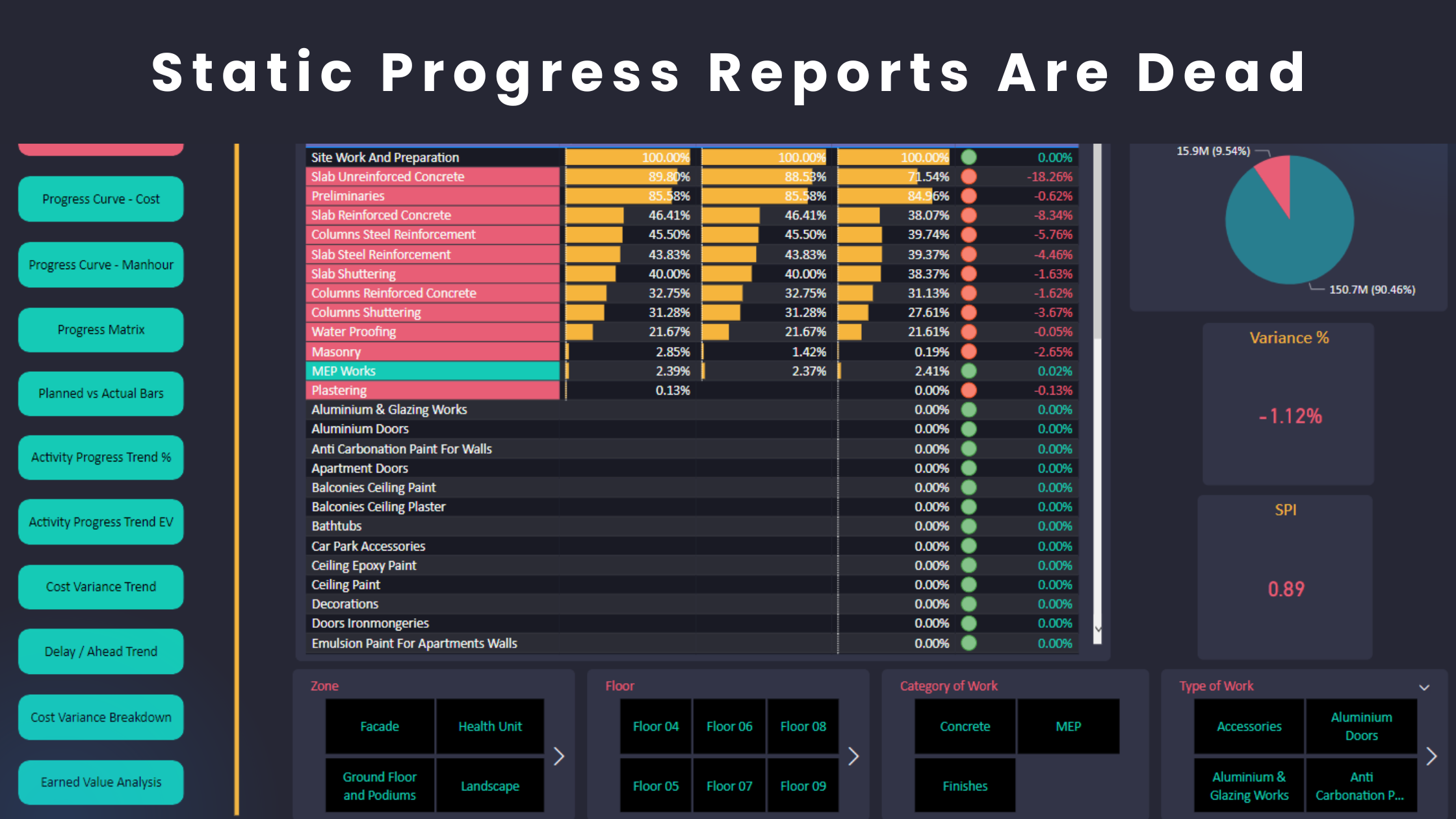As a planning engineer, you probably follow the below routine every week.
1- Collect progress data.
2- Update the schedule.
3- Prepare the weekly report and dashboards (input data in the same fields, apply the same formula, do the same formatting, etc)
4- Review the outcome.
5- identify project delays.
6- Prepare progress presentations for meetings.
7- Voila! Rinse and repeat.
Boring, right? Well, I am here today to tell you that there is a golden opportunity in this routine.
Here is an example of just one routine step. Every week, you calculate the SPI on Tuesday morning. It is when you’ve just completed the schedule update and started preparing the report. You divide the Earned Value Cost by the Planned Cost. This means that you apply the “same” mathematical operation every week on Tuesday morning. It doesn’t matter if you use excel for calculation purposes. You would still need to copy data from P6 or input a figure manually into your excel report. The same concept will apply when you try to calculate the Actual %, variance %, etc. In other words, you actively participate in the development of your report. Despite the current technology and software tools that we currently have at our disposal, 99.9% of planning engineers perform their duties in such a traditional way which impacts their productivity and limits their potential to add value.
Planning Engineers should find a way to apply technology leverage and code such routine tasks so that most of their work is passively completed; thanks to our boring routine. On the other hand, doctors can’t follow an exact routine every time they diagnose a patient because factors such as gender, age, and health problems must be taken into consideration. Hence, doctors must perform their duties in an active manner on a case-by-case basis. Planning engineers are just so lucky to have a routine whenever a reporting task is requested or completed.
Disadvantages of performing task routine
According to the above, when you “actively” perform your tasks and follow the routine, you will:
1- Feel bored by an overwhelming amount of repetitive work to produce static reports which make your work less enjoyable.
2- Spend more time, effort and energy performing the same tasks on weekly basis.
3- Have high friction in your workflow as you would need to apply numerous steps to prepare your report. Moreover, you will need to constantly review your outcome, apply P6 filters, deal with formula errors, format reports, update the cell range of your excel formula and refer to the baseline schedule as necessary.
4- Follow the “same” steps to prepare your progress presentation manually.
5- Struggle with meeting deadlines.
Advantages of coding your task routine
In this case, it makes far more sense to use data analytics processors such as Power BI to code the task routine which helps planning engineers:
1- Automate tasks and complete interactive reports and presentations on autopilot within seconds.
2- Analyze any area in the project with a click of a button using one tool.
3- Save time and effort by eliminating low-impact activities such as formatting or applying mathematical operations.
4- Not feel bored by doing the exact same work every week.
5- Enjoy less friction as you will need to worry less about excel formulas errors, reviewing your outcome or constantly referring to the baseline schedule, as necessary.
I am not talking about a few routine steps here. I mean the whole process that you follow to complete your reporting tasks such as trend analysis, progress curve, breakdown analysis, variance analysis, etc.
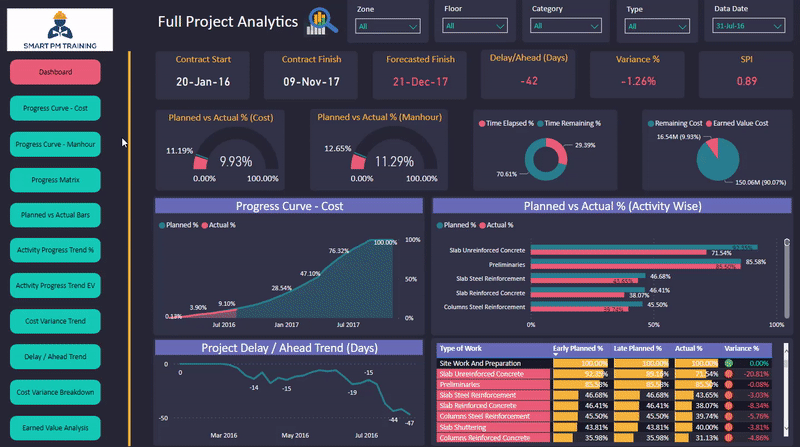
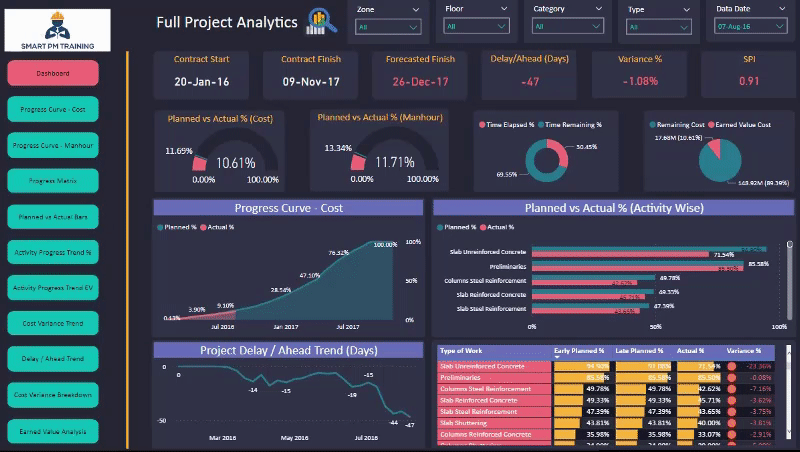
Conclusion
Your biggest enemy is sometimes your best ally. Your “boring” routine that you always complain about could be the reason for you to become more productive, add more value and unlock the best career opportunities. Your routine can be the way to have the time, freedom, clarity, efficiency and energy that you exactly need for a prosperous career. It is also how you stand out from the competition.
Regards,
Osama Saad, MBA, PMP, PSP, PMI-SP

